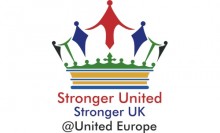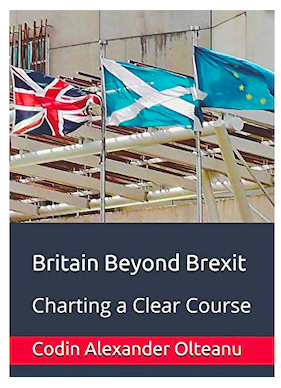Chinese president Xi Jinping's state visit to the United Kingdom in October 2015 marked a high point in the relations between China and Britain since Prime Minister Cameron's took office. Beyond the pomp and circumstance, the reception at Buckingham Palace, and the Parliament speech, one significant and surprising fact was no doubt that the Chinese President, who usually insists on the non-interference of the international community in any country's ‘internal affairs’ took a very strong stand on a quintessentially British internal matter: that of its continuing membership in the European Union and on the upcoming Brexit referendum on June 23, 2016. President Xi Jinping told Prime Minister Cameron that the United Kingdom must continue to paly a role in a united European Union and that British involvement in the block could help Europe build a closer relationship with China. This statement was reinforced by an official confirmation from China's Foreign Ministry that paraphrased the President's remarks:
“China hopes to see a prosperous Europe and a united EU, and hopes Britain, as an important member of the EU, can play an even more positive and constructive role in promoting the deepening development of China-EU ties.”
How are we to understand this vocal stand by the Chinese President and the Chinese Foreign Ministry on what we consider an internal decision? One only has to look at the important trade relations between the European Union and China and at the critical importance for China to maintain free and unimpeded access to the 500 million European consumer market to understand the Chinese President's position. Xi Jinping is very aware that many continental European countries would like to limit Chinese imports to the continent, impose higher tariffs on Chinese goods, and raise safety and environmental regulations o its products. China sees the UK as it “Hong Kong on the Thames”: its critical point of entry into single European market and at the same time as the state that, as member of the EU, can stand up in favor of both free trade and closer relations with China, and will be able to resist continental European temptations to restrict the European-Chinese terms of trade and to impose higher entry barriers on Chinese goods.
For this to happen, of course, the United Kingdom must remain a full member of the European Union and retain its participation rights in the EU decision-making processes - including its veto right in matters it considers of national interest. China is also unaware that besides David Cameron's participation at the top level of the European Council, a large number of European Union Commission jobs in various directorates are staffed by British professionals from the business and legal communities – individuals who bring an overwhelmingly positive mindset towards the principles of free trade, light regulations, and higher competitiveness of businesses, all of which favor China's presence in the EU. This is why President Xi Jinping considers Britain's continued membership in EU a matter of Chinese national interest and why he decided to break his usual stance of noninterference in the internal matters of other states to voice his strong support for Britain voting to stay in the European Union in the upcoming Brexit referendum.
There is however another longer-term geopolitical explanation for the Chinese President’s pronouncement on this matter. More than his Western counterparts who look at China as a single cultural entity Xi Jinping is well aware of the vast ethno-cultural and religious diversity of his country of more than 1 billion people. He is also intimately familiar with the rhythms and patterns of Chinese history over the past 4000 years that have seen successive and recurrent cycles of integration and disintegration of the Chinese homeland. This explains the ideological rigidity of Xi Jinping and of the entire Communist Party with respect to the non-negotiability of Chinese unity - including Hong Kong, Taiwan, Tibet, and Xinjiang - and their refusal to allow any ‘subversive’ discussions of subjects such as democracy, human rights, and self-determination interfere with the existential need for Chinese unity. It is from this deeply historical perspective that the Chinese President also steers his current drive for China's emergence to global prominence and his ambition for his country to attain the role of a global superpower on the same level with - if not yet quite equal to - that of the United States.
It is critically important to China that a united European Union with a coherent economic, trade, and foreign policy plays a balancing role between the North American and Asian giants, and contributes to the global development of a balance of power which presumably would also include Russia and India. President Xi Jinping most likely feels that in many ways 21st century China occupies the same geopolitical hotspot on the global stage as did the Imperial Germany of the late 19th and early 20th century on the European stage: surrounded on all sides by powerful competitors who could easily ally themselves against it and encircle it from all sides. In true Bismarck-fashion President Xi Jinping is attempting to ensure that China will always be bound in an alliance of at least three powers so as not to be put in a minority of two or even one, and thus be forced to make concessions which it could ill afford to make without significant damage to its national interests- economic, social, political, or military.
The Chinese President sees the United States in matters of trade and even more importantly in what it considers as topics related to its national unity in a manner similar to that Wilhelmine Germany considered France: as a neighbour with whom it could entertain peaceful relations from a position of constant vigilance, but never a real friend and trusted ally. China considers the US as its geopolitical archrival and is therefore attempting to compensate for this by building a network of friendships with the other existing or rising superpowers - and especially with European Union. The importance of the European Union for China is evident when we consider China's historically fraught relations with both India and the Soviet Union/Russia, as well as with its southeastern and eastern Asian neighbors, such as Vietnam, Indonesia, the Philippines, Korea, and Japan. Xi Jinping’s constant fear of an American-led ironclad encirclement which would severely restrict China's ability to rise as a global power is always on the Chinese president's mind and plays a key role in his attempts to ensure that a united Europe – China’s most natural ally among the five great global powers - constitutes a reliable and trusted economic, political, and diplomatic friend in the 21st century and beyond.

